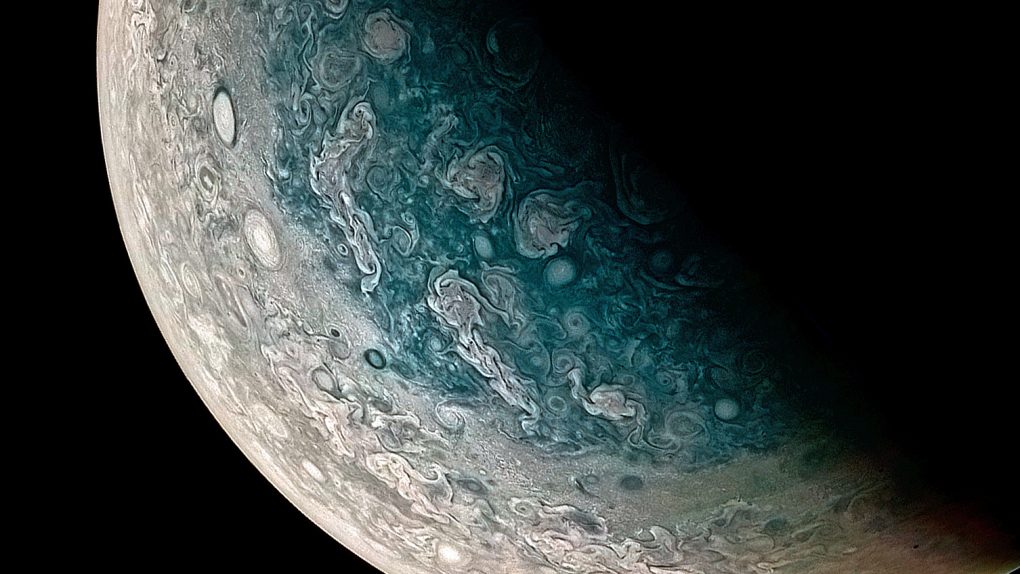Jupiter has long been hailed as the mighty “king of planets” thanks to its massive size compared to most of the other planets in our solar system. It’s huge, and it’s mostly made of gas, making it difficult for scientists to know what lies deep beneath its thick cloud cover.
NASA’s Juno spacecraft has been studying the planet in detail for over eight years now, and it’s returned some surprising observations about the planet’s core. Now, a new study from an international team of researchers may offer an explanation.
Scans from NASA’s Juno spacecraft have hinted that Jupiter’s core isn’t exactly what scientists once thought it was. The core isn’t as dense as researchers suspected, but determining why that is has proven to be a challenge.
“This is puzzling,” Andrea Isella, co-author of a new study published in Nature, said in a statement. “It suggests that something happened that stirred up the core, and that’s where the giant impact comes into play.”
To get to the bottom of the mystery, the team ran computer simulations of early Jupiter to see what kind of interactions may have led to the planet’s present state. What they found was that a massive impact, while the planet was still forming, is likely the best explanation.
“Because it’s dense, and it comes in with a lot of energy, the impactor would be like a bullet that goes through the atmosphere and hits the core head-on,” Isella explains. “Before impact, you have a very dense core, surrounded by atmosphere. The head-on impact spreads things out, diluting the core.”
The planet that may have struck Jupiter would have to have been huge, according to the simulations. The researchers estimate that it would have been roughly 10 times as massive as Earth, and it would have messed things up so dramatically that it would take billions of years to settle back down, explaining why the core of Jupiter isn’t nearly as dense and compact as scientists think it should be.








